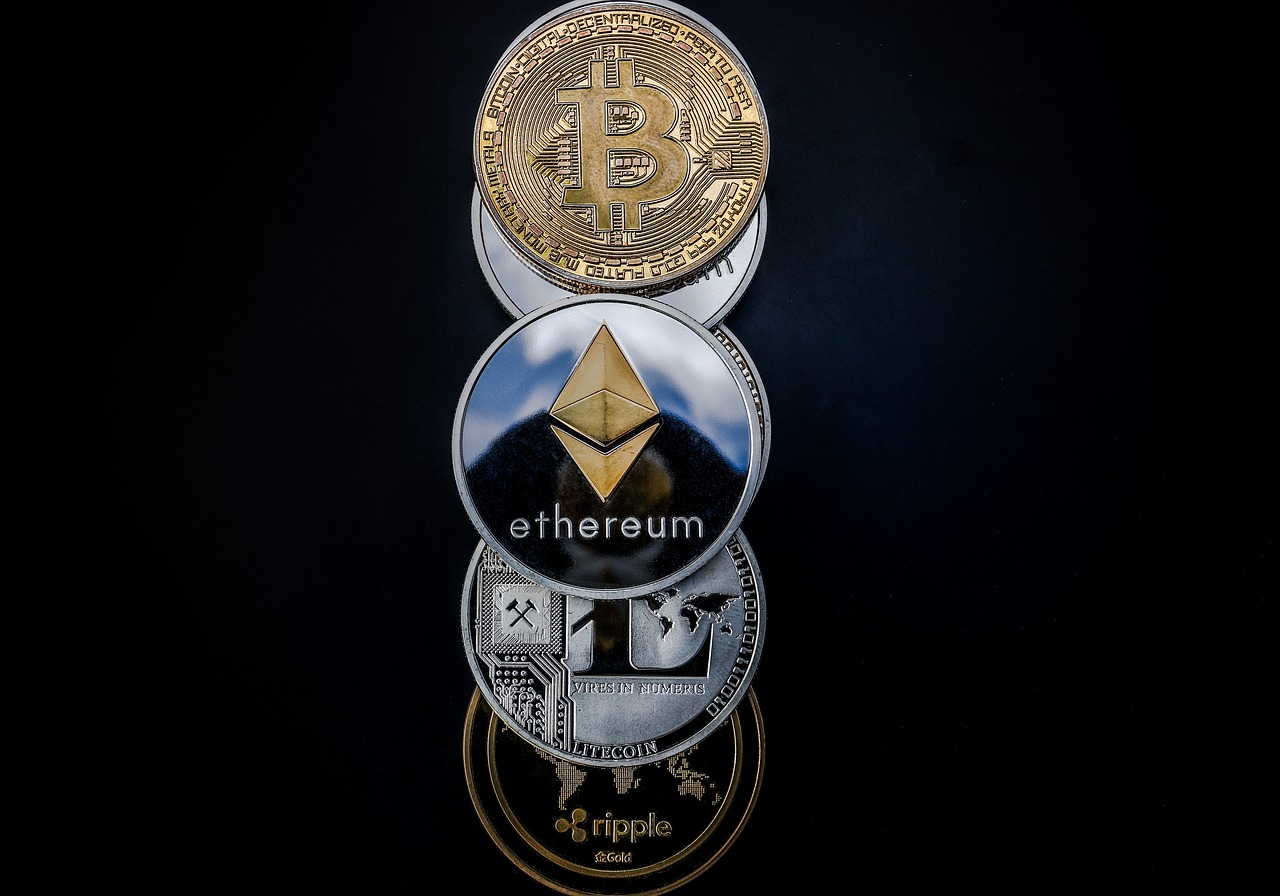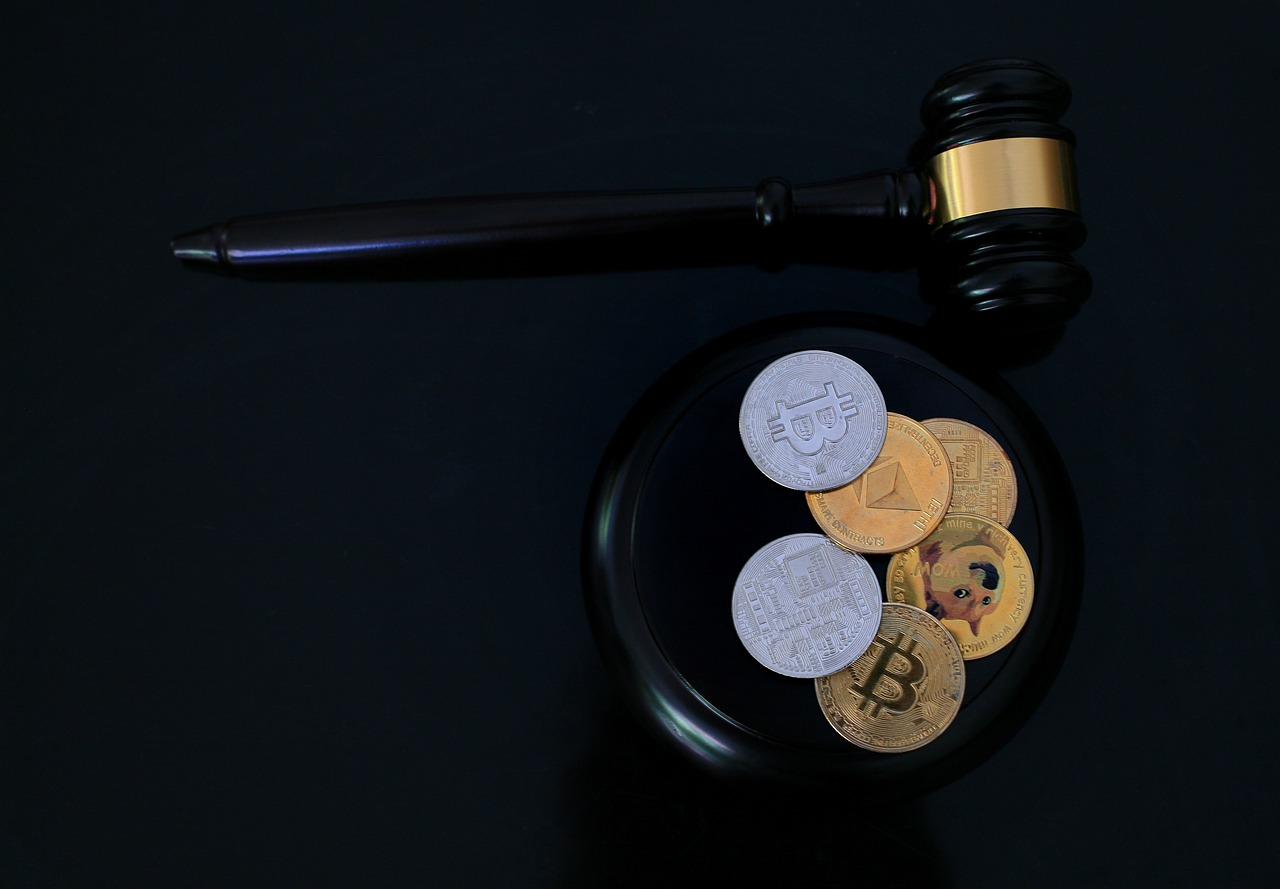How to Identify Emerging Market Opportunities in Crypto
In the fast-paced world of cryptocurrency, finding the right opportunities can feel like searching for a needle in a haystack. With thousands of coins, tokens, and projects emerging every day, it’s essential to have a strategy that not only helps you identify potential winners but also keeps you ahead of the curve. So, how do you spot these emerging market opportunities in crypto? The answer lies in a combination of understanding market trends, leveraging technological innovations, and staying abreast of regulatory changes.
First and foremost, you need to stay informed about the latest market trends. The crypto landscape is constantly evolving, and being aware of key indicators can help you make informed decisions. For instance, are there specific coins gaining traction in social media discussions? Are there sudden spikes in trading volumes? These trends can provide valuable insights into which projects are worth your attention.
Next, let’s talk about technological innovations. The crypto market is heavily driven by advancements in technology, and recognizing these can lead to exciting investment prospects. Take a moment to consider how blockchain technology is not just limited to cryptocurrencies; it’s expanding into various industries, including supply chain management, healthcare, and more. Understanding these applications can help you identify projects that are not just following the trend but are set to revolutionize their respective sectors.
Now, you might be wondering, “What specific innovations should I be looking for?” Well, let’s delve deeper into some of the most promising areas:
- Blockchain Developments: Innovations in blockchain technology are creating diverse applications that may influence market dynamics.
- Smart Contracts: These self-executing contracts are transforming transaction processes across various industries, paving the way for new opportunities.
- Decentralized Finance (DeFi): With traditional finance systems being challenged, DeFi platforms are emerging as alternative investment avenues.
Speaking of smart contracts, they are a game-changer in the crypto space. Imagine a world where contracts are executed automatically without the need for intermediaries. This not only speeds up transactions but also reduces costs and increases trust. As more businesses adopt smart contracts, the demand for innovative projects in this space will undoubtedly grow, presenting lucrative opportunities for investors.
Furthermore, the rise of DeFi is reshaping how we think about finance. It’s like a breath of fresh air in a stagnant industry, allowing anyone with an internet connection to access financial services that were once reserved for the privileged few. By investing in DeFi projects, you’re not just putting your money into another coin; you’re supporting a movement that aims to democratize finance.
But wait, it’s not just about the technology and trends. Understanding market sentiment is equally crucial. Have you ever noticed how a tweet from a prominent figure can send a coin’s price skyrocketing? That’s the power of market sentiment. By employing sentiment analysis tools, you can gauge the mood of the market and anticipate potential price movements. This can be a game-changer when it comes to making timely investment decisions.
Now, let’s pivot to the regulatory landscape. It’s essential to keep an eye on current regulations as they can significantly impact the crypto market. Different countries have varying rules regarding cryptocurrencies, and understanding these can help you navigate potential risks and rewards. For instance, if a country announces favorable regulations, it could lead to a surge in investment, while strict regulations might stifle growth.
To summarize, here are some key takeaways for identifying emerging market opportunities in crypto:
- Stay informed about market trends and indicators.
- Leverage technological innovations, especially in blockchain and DeFi.
- Utilize sentiment analysis tools to gauge market mood.
- Keep an eye on the regulatory landscape and its implications.
In conclusion, the world of cryptocurrency is filled with potential, but it requires a keen eye and a proactive approach to uncover the best opportunities. By combining an understanding of market trends, technological advancements, and regulatory changes, you can position yourself to capitalize on the next big thing in crypto.
Q: What are the best ways to stay updated on market trends?
A: Following reputable news sources, joining crypto communities, and utilizing market analysis tools can help you stay informed.
Q: How do I assess the potential of a new cryptocurrency project?
A: Look for strong use cases, a solid team, community engagement, and technological innovation when evaluating new projects.
Q: What risks should I be aware of in the crypto market?
A: The crypto market is highly volatile, and risks include regulatory changes, market sentiment shifts, and technological failures.

Understanding Market Trends
When it comes to the ever-evolving world of cryptocurrency, understanding market trends is like having a treasure map in a vast ocean of possibilities. You see, the crypto landscape is not just about buying and selling; it's about recognizing the subtle shifts and signals that indicate where the next big opportunity might lie. But how do you spot these trends? What are the key indicators that can help you navigate this volatile market?
First off, let’s talk about price movements. Analyzing historical price patterns can give you a glimpse into potential future behavior. For instance, if you notice a consistent upward trend in a particular cryptocurrency, it might be a sign of growing investor confidence. On the flip side, sharp drops can indicate market corrections or shifts in sentiment. Keeping an eye on these movements can help you make informed decisions and avoid costly mistakes.
Another critical aspect is trading volume. High trading volume often signifies increased interest in a cryptocurrency, which can be a precursor to price changes. You might be wondering, “How do I track trading volume?” Many platforms provide real-time data, allowing you to see how many coins are being bought and sold at any given moment. This information can be invaluable when trying to gauge market sentiment.
Moreover, it’s essential to consider the news cycle. The crypto market is heavily influenced by news events, whether it’s regulatory changes, technological advancements, or major partnerships. Keeping up with the latest headlines can help you anticipate market reactions. For example, if a well-known company announces it will start accepting a specific cryptocurrency, you can expect a surge in interest and potentially a price increase.
Additionally, social media sentiment plays a crucial role in shaping market trends. Platforms like Twitter and Reddit can serve as barometers for public opinion. By monitoring discussions and sentiment on these platforms, you can gain insights into what investors are thinking and feeling. This can be an excellent way to catch wind of emerging trends before they become mainstream.
To summarize, understanding market trends in cryptocurrency involves a multifaceted approach. Here’s a quick recap of the key indicators to watch:
- Price Movements: Look for consistent patterns and fluctuations.
- Trading Volume: Analyze the amount of coins being traded.
- News Cycle: Stay updated on relevant news events.
- Social Media Sentiment: Monitor discussions on platforms like Twitter and Reddit.
By paying attention to these indicators, you can position yourself to identify and capitalize on emerging market opportunities. Remember, the crypto market is like a roller coaster—full of ups and downs, but with the right insights, you can ride it out successfully!

Technological Innovations
The world of cryptocurrency is not just about trading coins; it’s a vibrant ecosystem driven by that continually reshape the landscape. As we dive into this fascinating realm, it's essential to understand how these advancements can unlock new opportunities for investors and enthusiasts alike. From the rise of blockchain technology to the emergence of decentralized finance (DeFi), each innovation presents unique avenues for growth and investment.
One of the most significant breakthroughs has been in the realm of blockchain technology. Initially designed to support Bitcoin, blockchain has evolved into a versatile tool with applications across various industries. Its decentralized nature enhances security and transparency, making it attractive for sectors such as supply chain management, healthcare, and even voting systems. As more businesses recognize the potential of blockchain, the demand for related investments is likely to soar, creating a fertile ground for savvy investors.
With the continuous evolution of blockchain, we witness the emergence of exciting developments that can significantly influence market dynamics. For instance, the introduction of Layer 2 solutions aims to address scalability issues faced by many cryptocurrencies. These solutions enable faster transactions and lower fees, which can attract more users and investors to the crypto space. Additionally, innovations like interoperability protocols are allowing different blockchains to communicate with one another, creating a more cohesive ecosystem.
Another groundbreaking innovation is the use of smart contracts. These self-executing contracts with the terms of the agreement directly written into code are revolutionizing how transactions are conducted. Imagine a vending machine that automatically dispenses your snack once you insert the correct amount of money—this is essentially how smart contracts work. They eliminate the need for intermediaries, reducing costs and speeding up processes. The potential applications are vast, from automating insurance claims to streamlining real estate transactions, making them a hotbed for investment opportunities.
Speaking of innovations, the rise of Decentralized Finance (DeFi) is transforming traditional financial systems. DeFi platforms are designed to replicate and improve upon traditional financial services like lending, borrowing, and trading, but without the need for centralized authorities. This shift not only democratizes access to financial services but also opens up a plethora of investment opportunities. Investors can earn interest on their crypto holdings, participate in liquidity pools, and even trade synthetic assets, all while enjoying the benefits of decentralization. The potential for high returns is enticing, but it also comes with its own set of risks that investors must navigate carefully.
In conclusion, the technological innovations within the cryptocurrency space are not just trends; they are foundational shifts that redefine how we think about money, transactions, and investments. By staying informed about these advancements, investors can position themselves to capitalize on emerging opportunities that arise from this ever-evolving landscape.
- What are the main technological innovations in cryptocurrency?
Key innovations include blockchain technology, smart contracts, and decentralized finance (DeFi), each offering unique investment opportunities.
- How do smart contracts work?
Smart contracts are self-executing contracts with the terms directly written into code, allowing for automated transactions without intermediaries.
- What is DeFi, and why is it important?
DeFi refers to decentralized financial services that replicate traditional finance without central authority, providing greater access and investment opportunities.

Blockchain Developments
Blockchain technology is like the backbone of the cryptocurrency world, constantly evolving and paving the way for innovative applications that extend far beyond just digital currencies. One of the most exciting aspects of blockchain developments is how they can create new market opportunities for investors who are willing to dive deep into the tech. With the rapid pace of innovation, it's crucial to stay updated on the latest trends and breakthroughs that could shape the future of crypto.
For instance, the introduction of Layer 2 solutions has significantly improved scalability on blockchain networks. These solutions, like the Lightning Network for Bitcoin and Optimistic Rollups for Ethereum, allow for faster transactions at lower costs. This not only enhances user experience but also opens doors for new applications that require quick and inexpensive transactions, such as microtransactions and real-time gaming. If you’re an investor, this is a golden opportunity to explore projects that leverage these technologies.
Moreover, the rise of Non-Fungible Tokens (NFTs) has taken the art and entertainment world by storm, creating a unique market that intertwines digital ownership with creativity. NFTs are not just about art; they encompass music, virtual real estate, and even tweets! This diversification of blockchain applications means that investors can tap into various sectors, each offering unique investment opportunities. The NFT market is a testament to how blockchain can disrupt traditional industries, and savvy investors should keep an eye on emerging platforms that facilitate NFT creation and trading.
Another noteworthy development is the integration of blockchain with Internet of Things (IoT) devices. Imagine a world where your fridge can order groceries automatically, and all transactions are securely recorded on a blockchain. This synergy enhances security and transparency, reducing the risk of fraud. As more industries adopt IoT solutions, the demand for secure, decentralized systems will grow, presenting numerous investment possibilities.
In addition to these advancements, the concept of decentralized autonomous organizations (DAOs) is reshaping how businesses operate. DAOs empower communities to make decisions collectively, eliminating the need for traditional management structures. This shift not only democratizes governance but also creates investment opportunities in projects that are community-driven and transparent. Investors can look for DAOs that align with their values and interests, potentially reaping rewards as these organizations grow.
To summarize, the landscape of blockchain technology is rich with opportunities for those who are willing to explore its depths. By staying informed about ongoing developments and understanding their implications, investors can position themselves to capitalize on the next big trend in the crypto space. Whether it's through Layer 2 solutions, NFTs, IoT integrations, or DAOs, the potential for growth is immense. As we continue to witness these advancements, the question remains: Are you ready to seize the opportunities that blockchain has to offer?
- What are Layer 2 solutions?
Layer 2 solutions are protocols built on top of existing blockchains to enhance scalability and reduce transaction costs. - How do NFTs work?
NFTs are unique digital assets verified using blockchain technology, representing ownership of a specific item or piece of content. - What is a DAO?
A Decentralized Autonomous Organization (DAO) is an organization represented by rules encoded as a computer program, which is transparent and controlled by its members. - How can I invest in blockchain technologies?
You can invest in blockchain technologies by purchasing cryptocurrencies, investing in blockchain startups, or participating in blockchain-based projects.

Smart Contracts
are one of the most exciting innovations in the cryptocurrency space, acting as self-executing contracts with the terms of the agreement directly written into code. Imagine a vending machine: you put in your money, select your snack, and the machine automatically delivers it without any human intervention. That’s pretty much how smart contracts work, but on a much grander scale. They automate processes, reduce the need for intermediaries, and enhance transparency in transactions, making them a game-changer for various industries.
At their core, smart contracts are built on blockchain technology, which ensures that once a contract is deployed, it cannot be altered or tampered with. This immutability is crucial for building trust among parties who may not know each other. For example, in real estate transactions, a smart contract can automatically transfer ownership of a property once payment is made, eliminating the need for a lengthy escrow process. This not only saves time but also reduces costs associated with traditional methods.
Furthermore, the applications of smart contracts extend far beyond just real estate. Here are a few industries that are already seeing the benefits:
- Supply Chain Management: Smart contracts can streamline operations by automating payments and tracking goods as they move through the supply chain.
- Insurance: They can facilitate claims processing by automatically verifying conditions and triggering payments when necessary.
- Healthcare: Smart contracts can manage patient consent and data sharing securely, ensuring compliance with regulations while improving patient care.
As the adoption of smart contracts grows, so do the investment opportunities surrounding them. Investors can look for projects that are integrating smart contracts into their operations or developing platforms that enhance their functionality. For example, decentralized applications (dApps) often utilize smart contracts to provide services without a central authority, opening up a whole new world of possibilities for innovation and investment.
However, it's essential to approach these opportunities with caution. While the potential for profit is significant, the technology is still evolving, and regulatory frameworks are catching up. Investors should stay informed about the latest developments in smart contract technology and the legal implications that may arise.
In conclusion, smart contracts represent a revolutionary shift in how we conduct transactions and manage agreements. They not only enhance efficiency and transparency but also create new avenues for investment in the ever-expanding crypto landscape. As we continue to explore the potential of this technology, the opportunities it presents will likely multiply, making it an exciting area for investors to watch.

Decentralized Finance (DeFi)
Decentralized Finance, commonly known as DeFi, is one of the most exciting and rapidly evolving sectors within the cryptocurrency ecosystem. Essentially, DeFi is a movement that leverages blockchain technology to recreate and improve upon traditional financial systems, such as lending, borrowing, and trading, without the need for intermediaries like banks. Imagine a world where you can access financial services at any time, from anywhere, without the cumbersome processes of traditional banking. Sounds liberating, right?
The appeal of DeFi lies in its transparency and accessibility. With DeFi platforms, users can interact directly with smart contracts, which are self-executing contracts with the terms of the agreement directly written into code. This not only reduces the risk of fraud but also eliminates the need for trust in a central authority. As a result, anyone with an internet connection can participate in these financial services, breaking down barriers that have historically excluded many individuals from accessing banking and financial tools.
Moreover, DeFi is creating new investment avenues that were previously unimaginable. For example, users can earn interest on their crypto holdings by lending them out through decentralized lending platforms. This is a stark contrast to traditional banks, where interest rates are often minimal. In fact, some DeFi platforms offer interest rates that can be several times higher than traditional banks. Here’s a quick overview of some popular DeFi services:
| DeFi Service | Description | Example Platforms |
|---|---|---|
| Lending | Users can lend their crypto assets to others and earn interest. | Aave, Compound |
| Borrowing | Users can borrow crypto by providing collateral. | MakerDAO, dYdX |
| Decentralized Exchanges (DEXs) | Platforms that allow users to trade cryptocurrencies without an intermediary. | Uniswap, SushiSwap |
| Yield Farming | Users can earn rewards by providing liquidity to DeFi protocols. | Yearn.finance, Curve Finance |
As DeFi continues to grow, it’s also important to consider the risks involved. Since the space is still relatively new, it can be prone to volatility and security vulnerabilities. Hacks and exploits have been reported, resulting in significant losses for users. Therefore, while the potential rewards are enticing, it’s crucial for investors to conduct thorough research and understand the platforms they are engaging with. A good rule of thumb is to only invest what you can afford to lose.
Additionally, the rise of DeFi has sparked a wave of innovation, leading to new financial products and services that could reshape the financial landscape. For instance, the concept of liquidity pools allows users to contribute their assets to a collective fund, which can then be used for trading or lending. This not only provides liquidity to the market but also allows contributors to earn a share of the fees generated by the platform.
In conclusion, DeFi represents a monumental shift in how we think about finance. It’s a space filled with opportunities for those willing to explore it. As the technology matures and more users become aware of its benefits, the potential for growth in this sector is staggering. So, are you ready to dive into the world of decentralized finance and explore the myriad of opportunities it offers?
- What is DeFi? DeFi stands for Decentralized Finance, which encompasses financial services that operate on blockchain technology without intermediaries.
- How can I earn money with DeFi? You can earn money through lending, borrowing, yield farming, and trading on decentralized exchanges.
- Is DeFi safe? While DeFi offers many opportunities, it also comes with risks such as hacks and smart contract vulnerabilities. Always do your research before investing.

Market Sentiment Analysis
Understanding market sentiment is vital for identifying potential opportunities in the ever-evolving cryptocurrency landscape. But what exactly is market sentiment? Simply put, it's the overall attitude of investors toward a particular security or financial market. In the crypto world, where emotions can swing from extreme optimism to sheer panic in a matter of hours, grasping the mood of the market can make all the difference between a profitable investment and a costly mistake.
To effectively gauge market sentiment, investors often turn to various tools and techniques. These can range from social media analytics to sentiment indicators that aggregate data from trading platforms. Imagine trying to read the room at a party—understanding whether people are excited or anxious is key to knowing how to navigate the social dynamics. The same applies to crypto markets. By analyzing the prevailing sentiment, you can make informed decisions about when to buy, sell, or hold your assets.
One of the most popular methods for assessing market sentiment is through social media analysis. Platforms like Twitter and Reddit are treasure troves of real-time opinions and discussions among crypto enthusiasts. By monitoring trending topics and hashtags, investors can get a pulse on what the community is thinking. For instance, if a particular cryptocurrency is trending positively on social media, it might indicate a buying opportunity. Conversely, a surge in negative sentiment could signal a potential downturn.
Additionally, sentiment analysis tools, such as Fear and Greed Index, provide a quantitative measure of market emotions. This index analyzes various factors, including volatility, market momentum, and social media sentiment, to produce a score that ranges from fear to greed. Understanding where the market stands on this spectrum can help you decide whether to jump in or take a step back. For example:
| Sentiment Score | Market Condition | Investment Strategy |
|---|---|---|
| 0-25 | Extreme Fear | Consider buying opportunities |
| 26-50 | Fear | Be cautious, look for signs of recovery |
| 51-75 | Greed | Consider taking profits |
| 76-100 | Extreme Greed | Exercise caution, potential market correction |
Moreover, sentiment analysis isn't just about numbers and data; it also involves understanding the narratives that drive the market. For instance, news about regulatory changes, technological advancements, or major partnerships can significantly sway public opinion. Keeping an ear to the ground on these developments allows investors to anticipate shifts in sentiment before they occur. Think of it like being a detective—connecting the dots between various pieces of information can lead you to valuable insights.
In conclusion, mastering market sentiment analysis equips investors with a powerful tool to navigate the volatile world of cryptocurrency. By leveraging social media insights, sentiment indicators, and staying informed about market narratives, you can position yourself to seize emerging opportunities. So, the next time you consider investing in crypto, remember to check the market mood—it's often the key to unlocking potential profits!
- What is market sentiment analysis? Market sentiment analysis involves assessing the overall mood of investors toward a specific market or asset, which can influence trading decisions.
- How can I measure market sentiment? You can measure market sentiment through social media analytics, sentiment indicators like the Fear and Greed Index, and by following news trends.
- Why is market sentiment important in crypto? Market sentiment is crucial in crypto because it can change rapidly, affecting prices and trading volumes significantly.
- What tools can I use for sentiment analysis? There are various tools available, including social media monitoring platforms and specialized sentiment analysis software that aggregates data from multiple sources.

Regulatory Landscape
The regulatory environment surrounding cryptocurrencies is like a double-edged sword; it can either pave the way for innovation or create barriers that stifle growth. As the crypto market continues to evolve, understanding the regulations that govern it is crucial for investors looking to identify emerging opportunities. Different countries have adopted varying approaches to regulation, which can significantly impact market dynamics.
For instance, in the United States, regulatory bodies like the Securities and Exchange Commission (SEC) and the Commodity Futures Trading Commission (CFTC) are pivotal in shaping the legal framework for cryptocurrencies. Their guidelines often dictate how cryptocurrencies can be traded and what constitutes a security. In contrast, countries like El Salvador have embraced Bitcoin as legal tender, showcasing a radically different approach. This disparity creates a unique landscape where investors must stay informed about local regulations to navigate potential risks and rewards effectively.
To further illustrate the global regulatory landscape, let’s take a look at a few key countries and their stance on cryptocurrency:
| Country | Regulation Type | Impact on Market |
|---|---|---|
| United States | Strict, with SEC oversight | Increased compliance costs, but legitimacy |
| China | Ban on crypto trading | Market contraction, but growth in blockchain tech |
| El Salvador | Pro-Bitcoin legislation | Increased adoption, potential tourism boost |
| European Union | Developing comprehensive regulations | Standardization across member states |
As you can see, the regulatory landscape is diverse and complex. Investors must be aware of how these regulations can influence market opportunities. For example, countries with clear regulations can foster a more stable environment for cryptocurrency investments, while those with restrictive regulations may drive innovation underground or lead to market volatility.
Moreover, compliance and security are paramount. Ensuring that your investments align with current regulations not only mitigates risks but also enhances credibility. Many investors overlook the importance of security measures, but the rise of sophisticated hacking techniques makes it essential to integrate robust security protocols into any crypto venture. Following best practices, such as utilizing cold storage for digital assets and implementing two-factor authentication, can safeguard your investments.
In conclusion, the regulatory landscape is a crucial aspect of identifying emerging market opportunities in the crypto space. By staying informed about global regulations and prioritizing compliance and security, investors can navigate this complex environment and capitalize on the potential rewards that lie ahead.
- What are the main regulatory bodies for cryptocurrencies? The SEC and CFTC in the U.S. are the primary regulators, but many countries have their own regulatory authorities.
- How do regulations affect cryptocurrency prices? Regulations can lead to increased legitimacy, which may boost prices, or they can impose restrictions that negatively impact market sentiment.
- What should I do to ensure compliance with regulations? Stay updated on local laws, consult with legal experts, and implement best practices for security and compliance.

Global Regulations
When it comes to the cryptocurrency market, regulations are like the rules of a game. They shape how players interact, what strategies they can employ, and ultimately, how successful they can be. In the crypto world, regulations vary significantly from one country to another, creating a complex landscape that investors must navigate. Understanding these regulations is crucial for identifying emerging market opportunities.
For instance, in countries like the United States, regulations are still evolving, with agencies like the SEC (Securities and Exchange Commission) actively working to define how cryptocurrencies should be classified and regulated. This creates a level of uncertainty but also opens up opportunities for innovative projects that comply with these regulations. On the flip side, countries such as El Salvador have embraced cryptocurrencies, even adopting Bitcoin as legal tender, which can spur market growth and attract investment.
In many regions, the regulatory framework is still in its infancy, leading to a wide array of approaches. Some countries have implemented strict regulations, while others have taken a more laissez-faire attitude. This disparity can create unique opportunities for investors who are willing to take the time to understand the nuances of each market. For example, in jurisdictions with favorable regulations, there may be a surge of new crypto startups, creating a fertile ground for investment.
Here’s a brief overview of how different regions are approaching cryptocurrency regulations:
| Region | Regulatory Approach | Impact on Opportunities |
|---|---|---|
| United States | Developing regulations, SEC involvement | Opportunities for compliant projects |
| European Union | MiCA regulation in development | Standardization may boost investor confidence |
| China | Strict bans on crypto trading | Limited opportunities, but potential for innovation in blockchain technology |
| El Salvador | Pro-Bitcoin regulations | Increased investment and market growth |
As an investor, it’s essential to stay informed about these regulatory changes. Following news sources, participating in relevant forums, and engaging with industry experts can provide valuable insights into how regulations may evolve. Additionally, understanding compliance requirements can help you mitigate risks associated with regulatory shifts, ensuring that your investments remain secure and viable.
In conclusion, the global regulatory landscape is a critical factor in identifying emerging market opportunities in cryptocurrency. By staying informed and adapting your strategies accordingly, you can position yourself to take advantage of the unique opportunities that arise in this dynamic environment.
- What are the main challenges posed by global regulations in crypto? The main challenges include compliance costs, navigating different regulatory frameworks, and the risk of sudden regulatory changes.
- How can I stay updated on cryptocurrency regulations? Following reputable news sources, joining crypto forums, and subscribing to regulatory updates are effective ways to stay informed.
- Are there any countries that are particularly crypto-friendly? Yes, countries like El Salvador and Malta have implemented favorable regulations that encourage crypto innovation and investment.

Compliance and Security
In the fast-paced world of cryptocurrency, are not just buzzwords; they are critical components that can determine the success or failure of a venture. As more investors flock to the crypto market, regulatory bodies around the world are stepping up their game, introducing frameworks that govern how cryptocurrencies and blockchain technologies can be utilized. This means that understanding the regulatory landscape is essential for anyone looking to navigate the tumultuous waters of digital currencies.
Compliance involves adhering to laws and regulations that govern financial transactions, which can vary significantly from one country to another. For instance, while some nations embrace cryptocurrencies, others impose strict regulations or outright bans. This complex web of regulations can create both challenges and opportunities for investors. Therefore, staying informed about the latest developments in global regulations is crucial. A savvy investor should always ask: How do these regulations affect the market? What opportunities can arise from compliance?
Moreover, security in the crypto space is paramount. With numerous reports of hacks and breaches, ensuring the safety of digital assets is a top priority for investors. Here are some key practices to consider:
- Use Reputable Exchanges: Always conduct transactions on well-established and reputable exchanges that have a proven track record of security.
- Enable Two-Factor Authentication (2FA): This adds an extra layer of security, making it harder for unauthorized users to access your accounts.
- Store Assets in Cold Wallets: For long-term holding, consider using hardware wallets or cold storage solutions that are not connected to the internet.
Furthermore, staying compliant with regulations not only helps in avoiding legal issues but also builds trust with potential investors and partners. Companies that prioritize compliance are often viewed more favorably, which can enhance their reputation and attract more business. In an industry where trust is paramount, being compliant can be a significant competitive advantage.
In conclusion, as you explore emerging market opportunities in the cryptocurrency space, never underestimate the importance of . They are the bedrock upon which successful and sustainable crypto ventures are built. By implementing best practices and staying informed about the regulatory environment, you can mitigate risks and seize opportunities that others might overlook.
Q: What is the importance of compliance in cryptocurrency?
A: Compliance ensures that businesses operate within legal frameworks, helping to avoid penalties and build trust with customers.
Q: How can I secure my cryptocurrency investments?
A: Use reputable exchanges, enable two-factor authentication, and consider storing your assets in cold wallets.
Q: Are regulations the same worldwide for cryptocurrencies?
A: No, regulations vary significantly from country to country, affecting how cryptocurrencies can be used and traded.
Q: What should I do if I suspect a security breach?
A: Immediately change your passwords, enable additional security measures, and contact your exchange or wallet provider for assistance.
Frequently Asked Questions
-
What are emerging market opportunities in crypto?
Emerging market opportunities in crypto refer to new and innovative avenues for investment and growth within the cryptocurrency space. These can be driven by technological advancements, shifts in market trends, and changes in regulatory landscapes, allowing investors to capitalize on fresh prospects as they arise.
-
How can I identify market trends in the cryptocurrency space?
Identifying market trends involves analyzing various indicators such as price movements, trading volumes, and market sentiment. Keeping an eye on news, social media discussions, and expert analyses can also provide valuable insights into the current mood of the market and help you spot emerging opportunities.
-
What role do technological innovations play in crypto investments?
Technological innovations are at the heart of the cryptocurrency market. They can create new platforms, enhance transaction processes, and introduce novel financial products. By staying updated on these advancements, investors can discover unique investment opportunities that may not have been available before.
-
What are smart contracts, and how do they affect crypto opportunities?
Smart contracts are self-executing contracts with the terms of the agreement directly written into code. They simplify and automate transactions, reducing the need for intermediaries. This technology opens up new market opportunities by enabling decentralized applications and services that can disrupt traditional industries.
-
How is decentralized finance (DeFi) changing the investment landscape?
DeFi is revolutionizing the financial sector by providing decentralized alternatives to traditional banking services. This shift allows users to lend, borrow, and trade assets without intermediaries, creating new investment avenues and the potential for higher returns in the crypto market.
-
Why is market sentiment analysis important in crypto?
Market sentiment analysis helps investors understand the emotional tone of the market, which can significantly influence price movements. By utilizing sentiment analysis tools, investors can gauge whether the market is bullish or bearish, helping them make informed decisions about their investments.
-
How do global regulations impact cryptocurrency investments?
Global regulations can greatly affect cryptocurrency investments by shaping the legal landscape in which these assets operate. Understanding the regulatory environment in different countries helps investors navigate potential risks and seize opportunities that arise from favorable regulatory changes.
-
What are the best practices for ensuring compliance and security in crypto?
To ensure compliance and security, investors should stay informed about local regulations, utilize secure wallets, and adopt best practices for protecting their digital assets. Regularly updating security measures and conducting thorough due diligence on projects can also mitigate risks while exploring new opportunities.



















